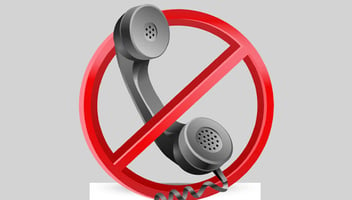Unlocking the Full Potential of CRM with Marketing Automation

With 58% of the global population spending more than six and a half hours online every day, digital customer touchpoints today have become the critical channels for brands to market, sell, and uniquely position themselves.
These digital channels have become a gold mine for businesses. The fusion of Customer Relationship Management (CRM) and marketing automation technologies offer an effective tool to explore the mine and unearth precious information to scale business affordably.
What Makes CRM and Marketing Automation the Dynamic Duo of the Modern Marketing World?
A CRM primarily focuses on streamlining sales, marketing automation generating the leads. When combined, the two create a sophisticated system that provides a holistic approach to revenue generation with customers at the center.
The CRM-marketing automation integration enhances customer acquisition and retention efficiencies. It also empowers organizations to quantitatively and qualitatively evaluate and correlate marketing efforts to sales.
Besides this, the integration of these tools is driven by the trends shaping the future of marketing. Here are the reasons why it is necessary to integrate CRM with sales and marketing automation platforms:
Demand for Personalization
The consumer demand for personalized marketing has been rising, with reports suggesting that 90% of consumers label generic marketing promotions as annoying. However, 87% of marketing leaders claim to be trying to teach personalization in marketing, and only a few are expected to make it to the other side.
A recent report reveals that 80% of marketers will abandon the efforts to improve and introduce personalization in marketing due to the lack of return on investment, and this, in turn, will open an extensive consumer base for brands that personalize marketing.
Businesses can capitalize on the situation by leveraging marketing automation and CRM combination. When integrated with CRM, sales and marketing automation tools will function as channels that bring crucial customer information stored in a central CRM database.
The information collected from various channels helps discover crucial customer pain points used to personalize promotions and win customers. Target marketing strategies can, thus, be implemented with ease and effectively.
Bridging the Sales and Marketing Divide
Pushy generic sales pitches and the minimum knowledge of the customer and their pain points often repel prospects. So when marketing teams generate leads, they do so by pitching a solution to a customer pain point.
However, in the absence of centralized storage for this data, its transmission to the sales team becomes a hassle. When trying to close a deal, sales teams can access the central CRM database created by marketing automation tools to close deals and acquire new customers.
The easy and quick access to data also ensures there is no miscommunication between sales and marketing teams, and a smooth cross-departmental workflow exists between the two groups. In addition, with the central repository at dispense, companies can evaluate processes across departments to maximize proficiency and productivity.
Automated Prospect Outreach and Nurturing
Repeated follow-ups and lead mismanagement can result in a loss of productivity, resulting in a loss in revenue and profitability. According to a report, these factors cost businesses approximately (https://www.cmocouncil.org/thought-leadership/programs/lead-flow-that-helps-you-grow) USD$ 1 trillion every year.
The CRM-marketing automation combination is an effective solution to prevent losses and nurture leads. Marketing automation tools automate follow-ups and nurture leads. The sophisticated tools analyze user behavior, personalize interactions, and periodically contact prospects through their preferred channels to nurture them before transferring them to sales teams.
CRM marketing automation also ensures sales representatives focus on closing deals while marketing teams leverage the automation tools to nurture leads that convert. The automation tools also enable sales teams to prioritize leads based on their intent and leverage real-time information to contact them.
A great example of the use case is the integration of text-based automation platforms with CRM. Text automation platforms engage leads using natural, free-flowing conversations and warm them up for calls. Sales teams can then leverage the data and information to contact and convert leads. In these ways, marketing automation grades leads improve conversions and bolsters sales team productivity.
Database Consolidation and Predictive Analysis
Manual management of databases can be time-consuming and is prone to errors. Mismanagement and erroneous data can translate to huge losses in the long run, with sales and marketing strategies becoming increasingly data-dependent.
Automation will ensure appending duplicate entries, and a single record for every customer exists. In addition, the data helps to identify upselling or cross-selling opportunities. Besides this, the analysis of error-free data also allows organizations to identify shortcomings in their processes and quantitatively determine how much sales and marketing contribute to the bottom line.
The Bottom Line
Marketing automation and CRM integration are becoming increasingly necessary for businesses with the combination of shortening sales cycles, evaluating marketing campaigns, identifying consumer pain points, buying processes, and enabling opportunity tracking.
With the world increasingly moving towards digitization, the combination of CRM and marketing automation presents marketing and sales leaders with a lethal weapon to scale businesses and uniquely position their brands in the market.

About Meera
Meera is an A.I.-driven text messaging & communication automation platform that emulates human conversations at scale through preferred channels. The platform also streamlines connectivity with customers to enhance sales, marketing, and service processes


.png?width=512&height=512&name=guru%20(1).png)

.png?width=199&height=109&name=salesforce-logo1-removebg-preview%20(1).png)




